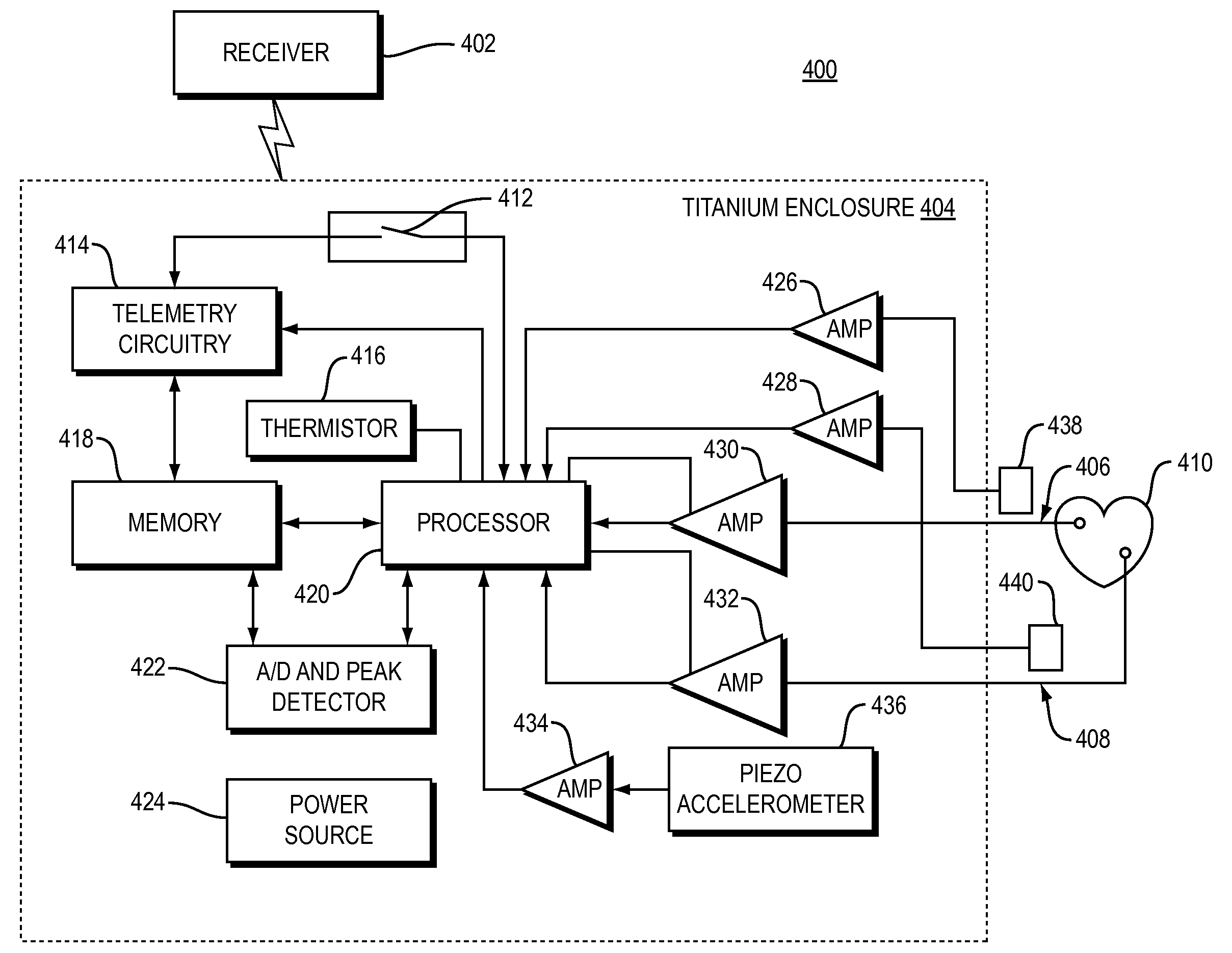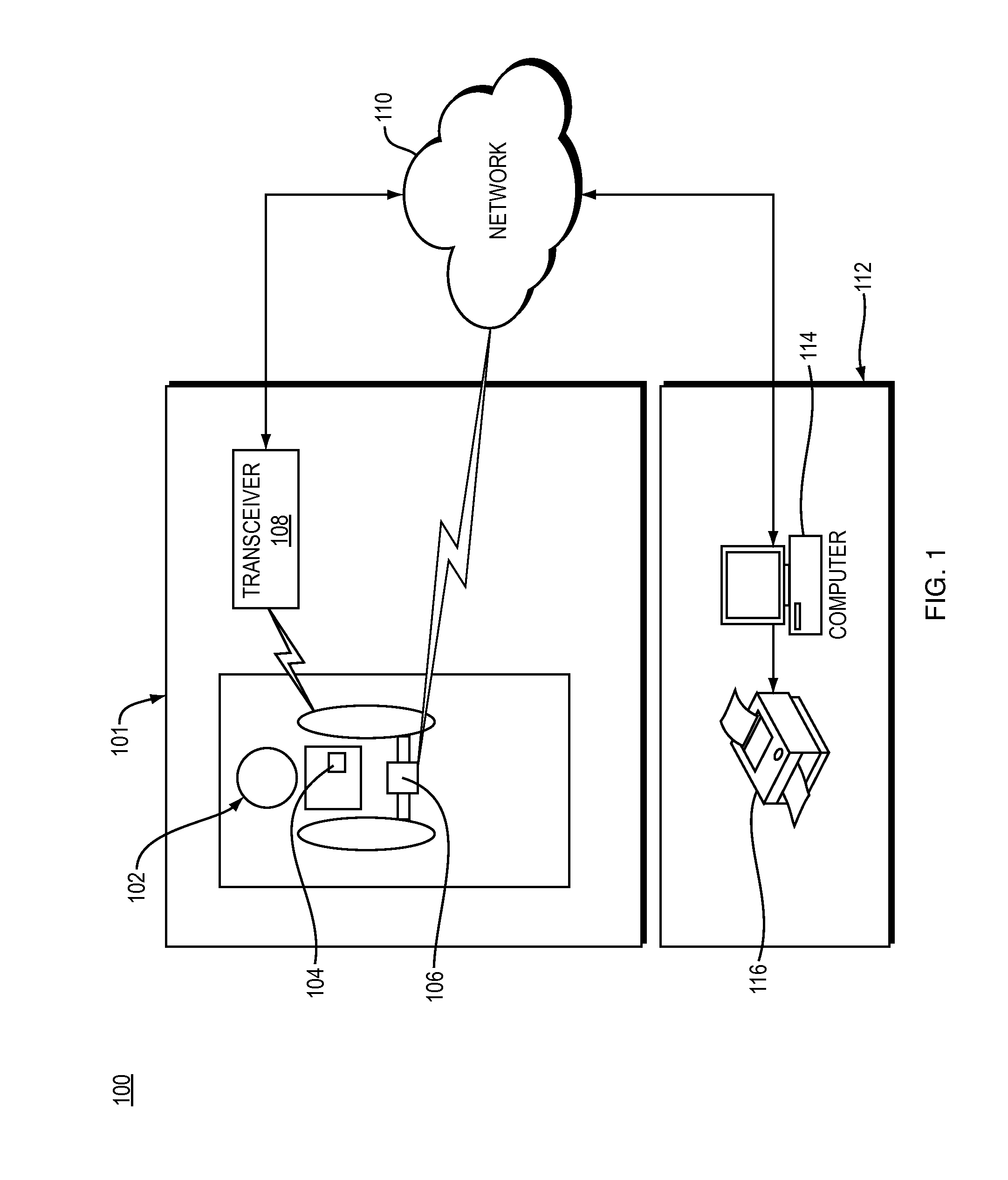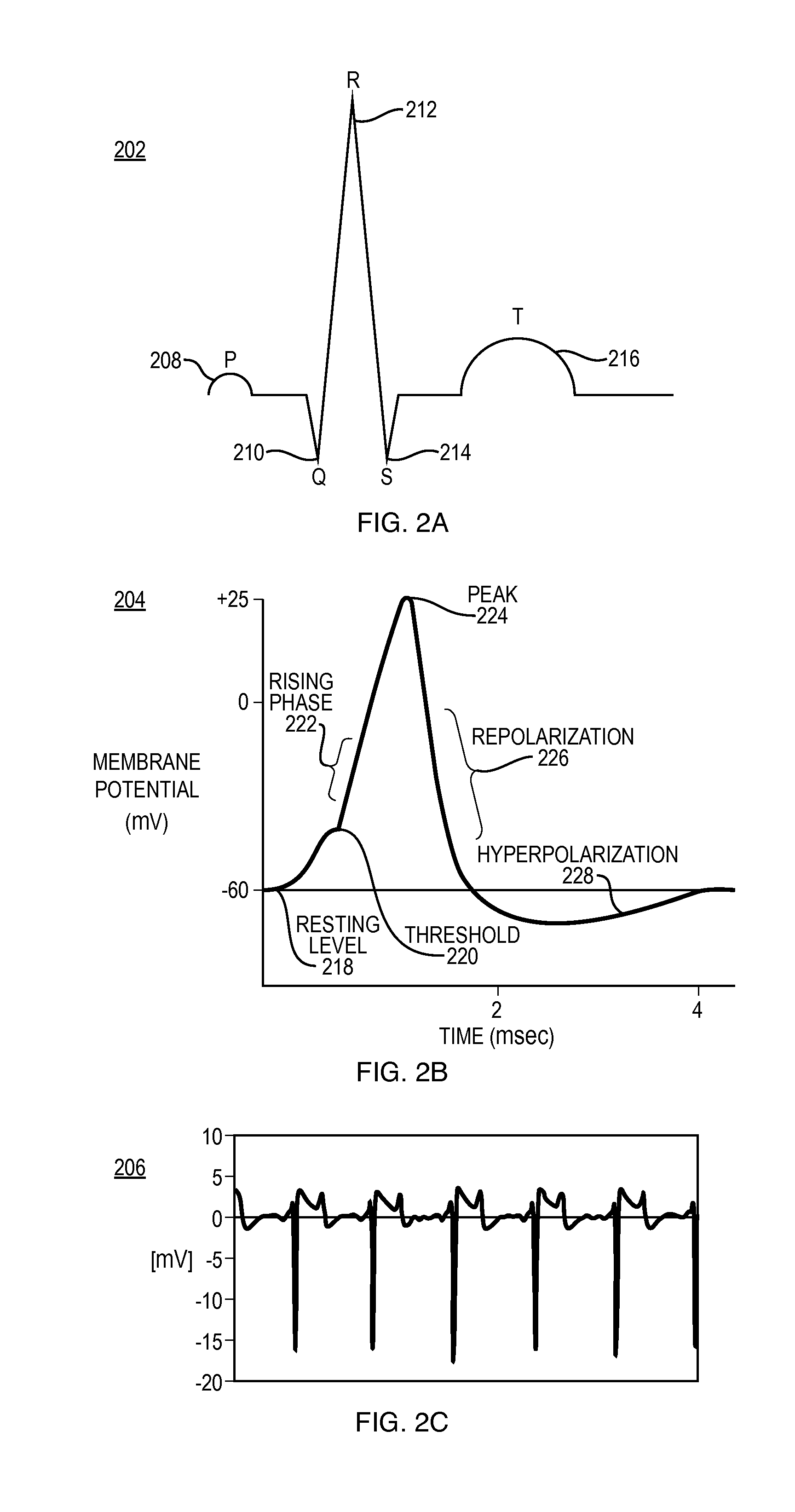Systems and Methods for Heart and Activity Monitoring
a heart and activity monitoring and activity monitoring technology, applied in the field of system and method for monitoring the heart and activity of a patient, can solve the problems of insufficient alone diagnosis of transplant rejection, heart failure, other heart related disorders, and ineffective ecg in detecting certain heart events, and the current heart monitoring system provides limited heart monitoring capabilities
- Summary
- Abstract
- Description
- Claims
- Application Information
AI Technical Summary
Benefits of technology
Problems solved by technology
Method used
Image
Examples
example
[0197]Each of three canine subjects (Dog 1, Dog 2, and Dog 3) was implanted with an Implantable Cardiac Assessment Monitor (ICAM) heart monitoring device in accordance with embodiments of the present invention. The heart monitoring devices were coupled to screw-in electrode leads positioned to record IMEG signals from the right ventricular septum (Septal IMEG) and right ventricular apex (Apical IMEG).
[0198]Microembolization procedures were performed on two of the subjects (Dog 1 and Dog 3) in order to induce heart failure (HF) over time, while the third subject (Dog 2) was selected as a control animal and did not undergo embolization. Embolization was performed by injecting silicone microspheres into the arteries of Dog 1 and Dog 3 in order to reduce blood flow to portions of the subjects' hearts, thereby causing infarction.
[0199]Cardiac data as described herein were recorded by the implanted heart montioring devices and transmitted wirelessly to external bedside montiors, which in ...
PUM
 Login to View More
Login to View More Abstract
Description
Claims
Application Information
 Login to View More
Login to View More - R&D
- Intellectual Property
- Life Sciences
- Materials
- Tech Scout
- Unparalleled Data Quality
- Higher Quality Content
- 60% Fewer Hallucinations
Browse by: Latest US Patents, China's latest patents, Technical Efficacy Thesaurus, Application Domain, Technology Topic, Popular Technical Reports.
© 2025 PatSnap. All rights reserved.Legal|Privacy policy|Modern Slavery Act Transparency Statement|Sitemap|About US| Contact US: help@patsnap.com



